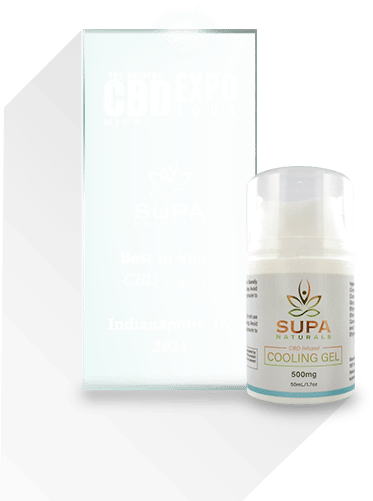Is Hemp the Same As Marijuana? How Does It Relate to CBD?
We’ve all heard people say that hemp is the same as marijuana, but is that the case?
The term “hemp” comes from the Old English hænep, also known by its botanical name Cannabis sativa (from the Latin meaning “cultivated”). Hemp has been used for centuries as an industrial crop because its strong fibers make great ropes, fabrics, and paper products. The hemp plant also produces seeds that contain CBD, which has recently become very popular due to its potential health benefits, such as reducing anxiety or pain.
Marijuana, on the other hand, comes from a different type of cannabis plant with higher THC levels and psychoactive effects, known as Cannabis indica. Marijuana is primarily useful in the recreational and medical industries as an analgesic for pain relief, nausea, vomiting, and appetite.
So, are hemp and marijuana the same? Not exactly. Are the two related in any way? Yes. Read on to learn more about what CBD is and how hemp and marijuana relate to it.
What Is Hemp?
Hemp is an ancient plant with a history that spans over 10,000 years. Throughout time, it has served countless purposes across many societies and cultures. For example, the sails of Christopher Columbus’s ships were made from hemp fibers, as was most clothing in colonial America.
Hemp is available at your local grocery store, too. Even some food products are now using hemp oil to give foods more flavor or nutrients. These include cereal-based snacks like granola bars, which contain oils derived directly from industrial hemp plants.
Although hemp plants (Cannabis sativa) are not psychoactive, they do contain THC at very low levels. Therefore, certain types of processed hemp can still cause euphoria in consumers due to the concentration of psychoactive compounds within them.
This is especially true for products that come from leaves and flowers that have higher THC. In most cases, manufacturers use these plant parts when making CBD oil-based goods because they have a longer shelf life than using just hemp flowers alone.
People choose hemp over marijuana if their goal is to avoid feeling high. Industrial hemp strains typically possess 0-0.3% delta-9-THC while having 1%-5% cannabidiol content by dry weight.
The 2018 Farm Bill states that Cannabis sativa plants containing less than 0.3 percent THC are considered hemp or industrial hemp. Producers can grow these hemp plants across most of the US, excluding Idaho, New Hampshire, Mississippi, and South Dakota, though they remain subject to strict regulation.
Primary Uses of Hemp
Manufacturers grow hemp to produce a variety of products, including:
- Cloth
- Cosmetics
- Rope
- Printer’s ink
- Wood preservative
- Detergents
- Soaps
- Lighting oil
- Food items (hemp seed milk, protein powder, certain oils)
Because hemp grows faster than trees and other crops, it is an excellent eco-friendly and sustainable alternative for paper products. Hemp seeds are also a healthy addition to any diet. They contain many vitamins and minerals, including vitamin E that can act as an antioxidant, reducing free radicals in your cells with its anti-inflammatory properties.
What Is Marijuana?

There are three main types of cannabis:
- Cannabis sativa
- Cannabis indica
- Hybrids
Each has different characteristics that result in distinct effects when consumed. Some common terms for the cannabis plant include marijuana, weed, grass, and pot. Legally speaking, marijuana refers to any cannabis plant with more than 0.3% THC by dry weight.
THC, also known as delta-9-tetrahydrocannabinol, is the psychoactive compound that gets users high when they ingest or smoke it. The term “marijuana” may also refer to parts of hemp stalks sourced into fiber products like paper and cloth but not CBD extracts derived from those same plants. This is because they do not contain enough cannabinoids (psychoactive compounds) like THC, making them useless for recreational or medicinal pain relief purposes.
Although recreational marijuana is now legal in 15 US states, it remains illegal federally speaking. Anyone caught with a federal substance still faces possible punishment under the law. It’s also against US laws for citizens to travel across state borders with marijuana.
Primary Uses of Marijuana
The medical uses of marijuana are now more widely accepted. This compound is thought to have significant benefits for those suffering from various illnesses and conditions. These include:
- Bipolar disorder and psychosis
- Epileptic seizures in adults and children
- Cancer symptoms
- Memory problems
- Neuropathic pain
- Glaucoma
- Painful muscle spasms due to multiple sclerosis
- Traumatic brain injury
- Inflammation
- Weight management
Recreational marijuana is not just for the sick. Here are some benefits that everyone can enjoy:
- Lowers stress levels
- Elevates mood
- Energizes the senses
- Increases appetite
- Increases happiness and relaxation
Another interesting point about marijuana is that it can help those transitioning from alcohol abuse. Cannabis is a much safer way to enjoy a high than alcohol. Substituting cannabis for drinking could be beneficial and can assist in curbing addiction.
Marijuana can also calm people in stressful situations. It can help alleviate anxiety, so long as it is taken in the proper dosage.
What Is CBD and How Does It Relate to Hemp and Marijuana?

CBD, also known as cannabidiol, is an active compound found in the cannabis plant. There are hundreds of such compounds, known as “cannabinoids,” including delta-9-THC. These compounds interact with the body’s endocannabinoid system by attaching to receptors involved in a variety of functions like appetite, anxiety, depression, and pain sensation.
Clinical research has proven CBD effective at treating epilepsy. The FDA has approved the use of Epidiolex (CBD) oral solution for patients with Lennox-Gastaut syndrome and Dravet syndrome in 2018. This CBD oil-based drug eases seizures, making it an effective medication in treating these rare forms of epilepsy in children.
Despite no evidence that CBD can help with anxiety and other conditions such as pain and loss of appetite, anecdotal reports have indicated a possible benefit for these conditions. However, more research is necessary before we can fully understand its potential benefits.
Marijuana contains CBD but also more THC than hemp. One study demonstrated the therapeutic benefits of marijuana for people who have multiple sclerosis. Another study showed a reduction in nausea symptoms. However, this study also showed an increased risk of respiratory issues when using marijuana over conventional anti-nausea drugs like ondansetron hydrochloride (Zofran) or maropitant citrate.
Many people have reported experiencing numerous health benefits when taking CBD. Some commonly reported health benefits include:
- Antipsychotic properties
- Anti-tumor properties
- Anti-diabetic properties
- Better sleep
- Increased heart health
- Neuro-protective properties
- Pain relief
- Reduced acne
- Reduced anxiety
- Reduced depression
- Reduced post-chemo symptoms (nausea, pain)
- Weight loss
In a nutshell, CBD is present in all cannabis plants, and there are different types of cannabinoids. Cannabis contains more THC, but hemp has higher levels of CBD. Hemp contains less than 0.3% THC, making it legal to buy at dispensaries or online stores in the US. Buyers can only purchase CBD products if they are 21 years old or older.
Hemp-Derived CBD vs. Marijuana-Derived CBD
CBD, whether hemp-derived or cannabis-derived, affects your body in the same way. This is because all types of cannabidiol assume the same chemical composition.
CBD has common side effects reported in many users. These include:
- Diarrhea
- Drowsiness
- Dry mouth
- Fatigue
- Reduced appetite
Hemp CBD extract is legal in most parts of the world, whereas cannabis CBD extract is not. Hemp plants are a more lucrative source of CBD. They have far more significant amounts available for extraction, making them a popular choice among manufacturers. Hemp-derived CBD is also the one with the least potential for legal ramifications in the US. It usually produces CBD with less than 0.3% THC.
The Many Forms of CBD
CBD primarily occurs in three forms:
CBD Isolate or Pure CBD
CBD isolate is separated from all other cannabinoids. It does not contain the terpenes and flavonoids that give marijuana its strong aroma and earthy flavor.
Unlike full-spectrum CBD products, it does not contain any THC. Most other CBD products have at least a small percentage of THC.
Broad-Spectrum CBD
Broad-spectrum CBD is a form of CBD containing at least three cannabinoids and some flavonoids and terpenes. This form of CBD typically has no THC.
Full-Spectrum CBD
Full-spectrum CBD contains all the cannabis plant extracts, including essential oils, terpenes, flavonoids, and cannabinoids other than THC. They may also include up to 0.3% THC.
Is Hemp Oil the Same as CBD Oil?

You can differentiate hemp and CBD oil by the source of their main ingredient. While hemp comes primarily from the plant’s stalk, CBD comes mainly from leaves and flowers because these parts contain more cannabidiol content than other parts of the plants.
Hemp oil might have some benefits. One study found that the product significantly calmed public speaking-induced stress when participants were given a dose of hemp oil before their speech. At the same time, another showed it impacted activity in the brain’s limbic system responsible for our “fight or flight” response.
However, CBD has many more potential benefits than hemp alone, with research demonstrating that cannabinoids could impact everything from anxiety to epilepsy within animal studies and preliminary human tests so far.
Moreover, the FDA has approved the purchase of hemp oil, but CBD oil is only legal if it contains less than 0.3% THC content.
Where to Buy Hemp-Derived CBD
Since the introduction of the 2018 Farm Bill, CBD has become increasingly popular with retail customers. It is available in CBD dispensaries and online stores such as SUPA Naturals.
CBD has become an excellent option for people who want to avoid smoking marijuana but still incorporate it into their daily routine. There are many forms of CBD available online, and most stores that sell medical cannabis products will have it in stock.
Retail CBD is available as:
- Tinctures
- Oils
- Edibles
- Soft gel capsules
- Topical creams and lotions
- Vaping oils
Unless you know exactly what to look for, it’s hard to determine the quality of CBD products. Reputable online retailers like SUPA Naturals openly share their Certificates of Analysis from independent lab testing to ensure the accuracy, purity, and standards of the CBD products they offer. High-quality CBD products contain zero solvent residues, cutting agents, toxins, artificial fillers. They are also free from pesticides, heavy metals, and microbes.
You may also seek more information from the manufacturer’s product labeling to confirm dosage and quality. SUPA Naturals has a useful CBD Quiz that can help you find the right products for your needs. At SUPA Naturals, you can purchase some of the most effective, independently tested, premium CBD products on the market, even for pets.
A Final Word on Hemp, Marijuana, and CBD

Hemp and marijuana are two different varieties of the C. sativa plant. Hemp contains more CBD and minimal THC, while marijuana contains more THC than CBD. This is why most people prefer using them over THC-heavy marijuana.
CBD, derived from both hemp and marijuana plants, is attracting considerable public interest because it shows promise in treating various physical and mental health issues.
It is important to consult with a doctor when using CBD, as CBD may interact with certain medications to produce adverse effects. Be sure your doctor is aware of any supplements you take before you start using these products.
Additionally, review local laws to ensure you are in full compliance. Hemp-derived CBD differs from cannabis-derived CBD in that it contains less than 0.3 percent THC. Make sure you understand your state’s laws before taking either form of this supplement to avoid breaking the law.
If you’ve been looking for a CBD supplement that works, SUPA Naturals might be the answer. Our high-quality extracts will help ease your symptoms in no time!
Contact us at [email protected] with any questions. Browse our online store to get premium, independently tested CBD products. While you’re there, be sure to get more information on our up-to-date blog and website.






